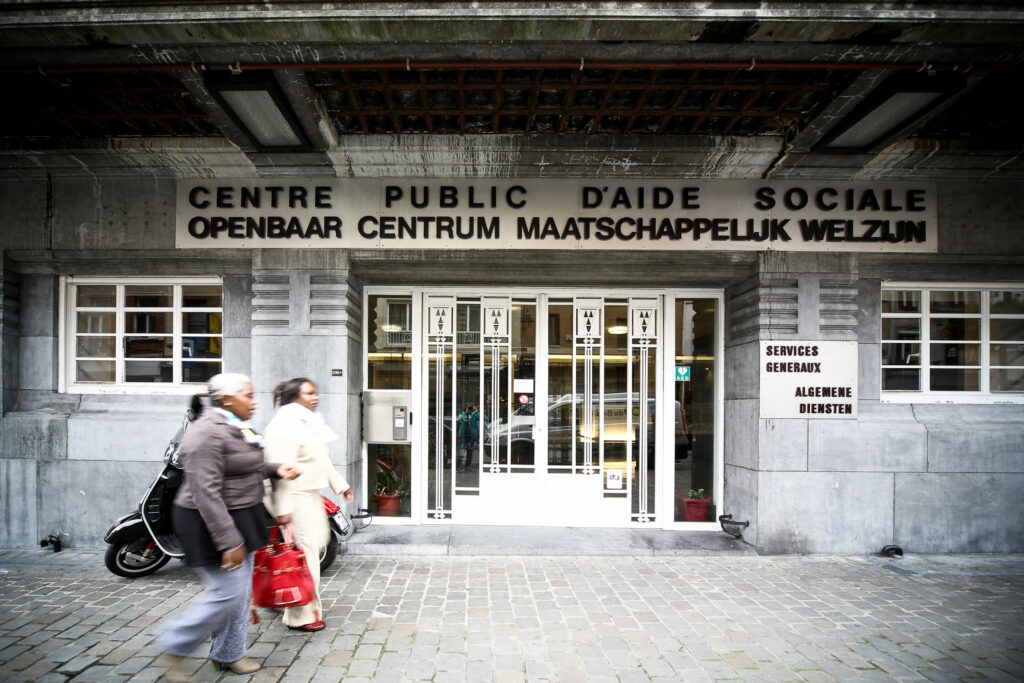Pension costs pose the number one financial challenge for the next six years, Brussels' communes agree, with a recent report by Belfius bank highlighting the "major financial risk" of staff pensions.
The report by Belfius, published Tuesday, sets out the main financial challenges that local authorities in Brussels will face in their next term. With municipal elections in less than a month, pension costs were most pressing, followed by security costs, social assistance and the energy transition.
The report highlights an "unprecedented increase" in staff costs, which now account for more than 40% of all commune spending. This is due to increased pension costs for statutory staff, as well as wage indexation and various social agreements that have led to pay increases.
Pensions now represent an average of 13% of total staff costs for municipalities, Belfius notes. It's a problem that staff managers are aware of but unable to address. For instance, the baseline "responsibility contribution" collected from communes and public social action centres (CPAS) has doubled from 2021 to 2024 (from €50 million to €101 million). These costs are expected to rise to €176 million by 2028.
Unlike Flanders and Wallonia, local authorities in Brussels have no support measures to manage mounting pension costs, Belfius warns. This burden weighs particularly on public hospitals.
It is not the first time that the alarm has been sounded about pension costs in Belgium: the National Bank of Belgium last year warned of soaring pension spending; the Federal Committee on Ageing also highlighted the issue this summer.
Security and social assistance
Other key spending concerns for communes are security and social assistance – costs that are mainly transferred to other local services such as CPAS and police zones.
Although these are under federal jurisdiction, local authorities contribute an average of €411 per inhabitant for CPAS and €371 per inhabitant for police zones. These contributions rose by 6.7% in 2024 and an average of 6% per year over the last term.
The Belfius report highlights that municipalities have long been calling to rebalance federal funding for these services, in line with real costs incurred.

A Public Centre for Social Welfare (CPAS) on Rue Haute in Brussels. Credit: Belga
Energy costs and transition 'major challenge'
The third major challenge the report outlined is the energy transition, which almost half (47%) of municipalities are concerned will cost them dearly. Accelerating this, encouraging sustainable transport, and strengthening resilience to climate change and more extreme weather is an expensive exercise.
While Belfius noted that most local authorities are already working on local climate plans (PAECD), implementing these requires "considerable financial and human resources" at the local level.
The spiralling energy costs (which almost doubled between 2022 and 2024) have already pushed communes to take steps to save energy, including LED lighting, building renovations, and fitting solar panels.

Upgrading building stock will deliver long-term savings, but are costly for communes to carry out. Credit: Unsplash / Jean-Luc Picard
A 'turbulent' six years for public finances
Reviewing the six-year term that is coming to a close, Belfius acknowledged that this has been unusually "turbulent", with the Covid-19 pandemic followed by "galloping inflation with soaring wage and construction costs, the energy crisis and rising interest rates".
Local authority spending grew by an average of 5.6% per year between 2019 and 2024 (peaking at a 9.2% increase in 2023 due to inflation and energy costs), and the finances of the communes have suffered. 11 communes are now under a management plan and several have a structural deficit.
According to the initial 2024 budgets, the Brussels municipalities collectively recorded a slight deficit of €15.4 million, with 10 communes presenting a budget deficit this year compared with only 4 communes in 2023.
As a whole, Belfius noted that the Brussels municipalities will have a slight budget surplus of €58.5 million (equal to 1.9% of ordinary revenue) this financial year. But this is significantly less than the almost €200 million in 2019.
Dirk Gyselinck, who sits on the Belfius Management Board, said this year is an opportunity to "take stock" of the last six years for local finances, and make projections about the term ahead. "This term of office has been profoundly marked by various crises, often unprecedented and always very intense, leaving little respite for local finances. In the face of such adversity, local authorities have risen to the challenge, continuing to invest in the society of tomorrow – particularly in sustainable transition – and managing to keep their finances in balance."

